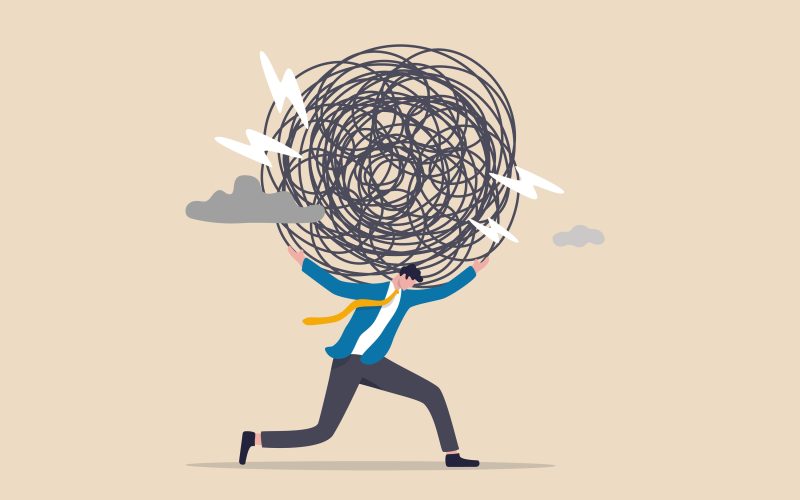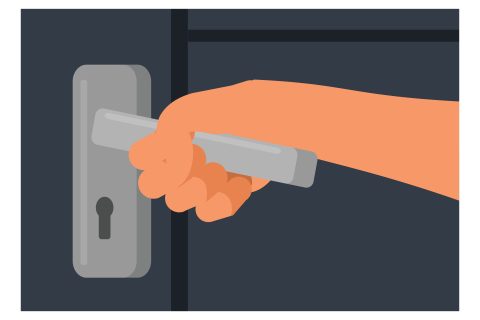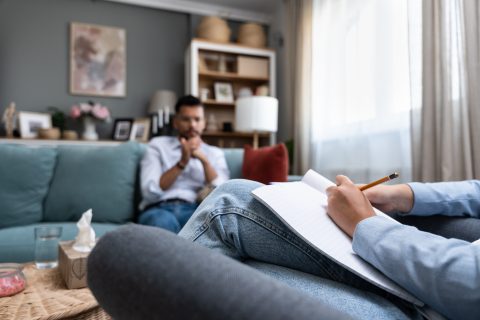Imagine if we all just embraced our anxiety rather than trying to seek to eradicate it. Tracy Dennis-Tiwary is a professor of psychology and neuroscience at Hunter College, the City University of New York, where she directs the Emotion Regulation Lab. She joins host Krys Boyd to discuss why, she says, anxiety is tied to hope, and why linking it to disease is an outmoded way of thinking. Her book is “Future Tense: Why Anxiety Is Good For You (Even Though It Feels Bad).”
Bonus Blog: Think of anxiety as your brain’s built-in time travel machine
—By Cristin Espinosa, Digital Producer for Think
Everyone experiences anxiety—but it’s not always a bad thing. Our guest, professor Tracy Dennis-Tiwary, argues that anxiety has a unique purpose that is different from fear.
“Anxiety is the emotion that tells us there’s this uncertainty in the future and prepares us to avert the bad things and make the good things into reality,” Dennis-Tiwary says. “Anxiety feels like fear, but it’s distinctly different. Fear lets us know that there is certain and present danger, and it prepares us to fight or take flight. But anxiety makes us into time travelers.”
The professor explains that anxiety brings us into the future because it signals that there may be some uncertainty ahead that we’re nervous about. Whatever lies ahead of us, anxiety can motivate us to prepare for all kinds of different outcomes.
“The future is uncertain not because something bad will necessarily happen, but because something bad could happen,” Dennis-Tiwary points out. “It hasn’t happened yet, and something good could happen instead.”
While anxiety can be a force for good, it’s important to recognize when anxiety can go too far. There’s a difference between having moments of anxiety and having an anxiety disorder.
“By definition, an anxiety disorder is when the ways we cope with that intense anxiety are getting in the way of living well,” Dennis-Tiwary says.
Of course, we shouldn’t treat all anxiety as a disorder. In many cases, if we listen to what our anxiety is telling us, we can take action to alleviate our worries.
“In a nutshell, a lot of those things that are helpful to us are about reentering the present moment, because anxiety sends us into the future,” Dennis-Tiwary says. “The trick is knowing that after we give anxiety a shot to see if it does tell us anything useful, that we have tools in our toolkit to do something with it.”
There are endless ways in which we can cope with anxiety. Many people turn to exercise, spending time with friends, and, of course, therapy. Sometimes, all we need is social connections and support to alleviate anxiety.
If you need more formal support, Dennis-Tiwary says access to professionals has never been easier. Telehealth services have become even more accessible and effective during the pandemic, and there are plenty of websites and databases that can help you find the right therapist for you.
This episode was featured in our 2022 Best of Think series. Listen to the full show by clicking on the play button above.





